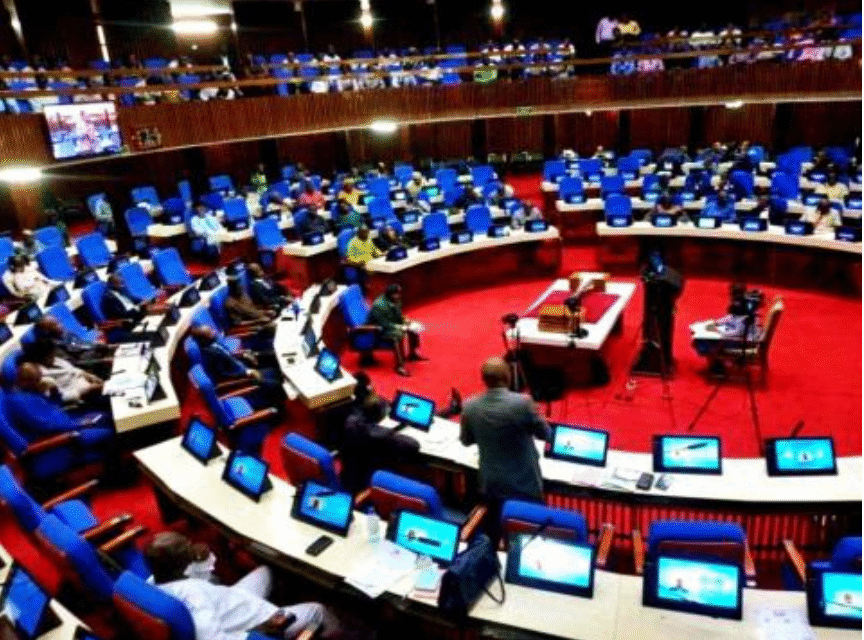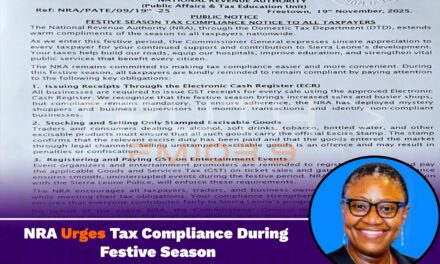Freetown, 18th August 2025 – It was 10:00 a.m. on Tuesday, 1st July 2025, the official start time for Parliament’s sitting. But inside the chamber, the seats were mostly empty. A nation waited, once again, for its lawmakers to show up for work. When Speaker Hon. Sengepoh Solomon Thomas finally entered, frustration spilled over into his voice.
“Upon my entry into this well, I am expected to meet the full complement of this House, but unfortunately, that is not the case here,” he said, staring at rows of vacant chairs.
While he praised the few MPs who were present and punctual, the Speaker issued a firm warning:
“At the end of this parliamentary term, I will formally present attendance records to the respective political parties. They deserve to know how well—or poorly—their members have represented them in this chamber.”
But this isn’t new. Four years ago, the Institute for Governance Reform (IGR) released a damning 2021 Parliamentary Scorecard revealing that 1 in 5 MPs missed at least half of all sittings during the last quarter of the year. Back then, the Speaker was Hon. Dr. Abass Chernor Bundu, who, alongside party leaders, expressed concern over the same issues: absenteeism, tardiness, and a lack of seriousness.
The IGR report also exposed Parliament’s chronic lateness. Average sitting times were delayed by 20 minutes, as leadership scrambled to meet the minimum 25% quorum required to start sessions. The report urged party whips to enforce attendance and suggested leveraging the House’s ongoing digital reforms to automate attendance tracking—recommendations that still hang in limbo.
Across the country, citizens are growing weary. They see the chamber’s empty seats not just as a logistical hiccup, but as a metaphor for a deeper failure of leadership.
“Honestly, it’s disappointing,” said Haja Aminata Sillah, a student in Freetown.
“These are people elected to serve the public and lead by example. If they can’t even show up on time, how can we trust them with bigger decisions?”
Alpha Bundu, a university student, was blunt in his criticism: “If our lawmakers can’t keep time, how do we expect them to fix the economy, the health system, or even pass meaningful laws?”
Sia Satta Dauda another citizen who visited Parliament last week for a scheduled 10:00 a.m. sitting, described her shock:
“At 10:10 a.m., there were fewer than 5 MPs out of 149 in the hall. It took until 10:25 for the Speaker to walk in and start. That level of disregard is unacceptable. It sends the wrong message about governance and commitment.”
Speaker Thomas’s decision to share attendance records with party leaders may signal a move toward transparency according to civil society groups and everyday citizens.
Many are now demanding: Public access to attendance records, docked salaries and allowances for habitual absentees and enforcement by party leadership to hold their MPs accountable
There is also growing momentum behind the idea that the digitalization of Parliament must go beyond livestreams and websites, it should include real-time attendance logs, automatic check-ins, and transparent reporting to the public.
This issue of lateness and lethargy may seem small on the surface, but it reflects a broader sense of disconnection between citizens and their elected representatives. In a country still battling economic hardship, youth unemployment and a crumbling health system, the public expects Parliament to lead, not lag.
Parliamentarians are not just politicians. They are the embodiment of the people’s will, entrusted with a sacred duty. Showing up late or not at all is not just disrespectful, it is a dereliction of duty.









